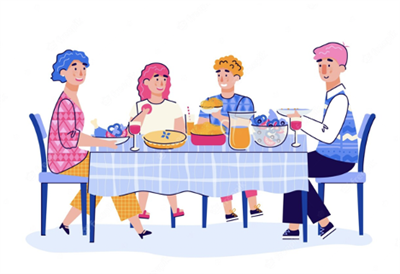No word better describes teenagehood than “transition”. Teenagehood is a period of many vast and great transitions in your child’s life. While these can be exciting and scary in equal parts, many parents may struggle with coping with all this change. This article will explore how you can maintain a strong relationship with your child amidst teenagehood.
Spend more time with your teen
In an age where your child seems to become more withdrawn from family, and takes greater interest in exploring other social relationships, parents may assume that their teenage child does not wish to spend time with them. While it is true that your teenager would like to take the time to explore other relationships in greater depth, it does not mean that they do not wish to spend time with you.
Perhaps, what may be a surprising fact to some parents is that teenagers actually wish to spend more time with their parents. Some common complaints among teenagers is that their parents spend too much time on their phones and laptops, sending out emails or some other work-related task, even during family times such as dinners.
On the other hand, a study by students from Nanyang Technological University (NTU) has found that parents regret spending too much time at work, and sacrificing the time they had to spend with their families and children as a result.

While as an adult, work may understandably be a significant priority, as a parent it is important to carve time out for your children. Research has often emphasised that spending quality time with their parents is crucial to a teenager’s socio-emotional development, and is vital to their wellbeing.
As such, the first step to adapt to teenagehood is to make sure that you are spending enough time with your child. A useful tip is to set a fixed time every week, such as Friday evenings, to spend quality time with your teenager. Do something that both parties enjoy, such as a common hobby. Alternatively, you could simply catch up on each others’ lives and have a casual conversation. Whatever you choose to do, make sure to dedicate the time to your teenager. Even if your teenager might not seem as receptive in the short term, in the long term this will definitely pay off as you become closer with each other. Consistency is also crucial — be sure not to override this commitment with other appointments, as doing so could cause your teenager to lose trust in you. They may also feel that you do not care enough about them.
According to Josh Shipp’s book “The Grown-ups’ Guide to Teenage Humans”, having a caring adult who shows up consistently for them is the biggest factor in ensuring a teenager’s “success”. Thus, the first step to adapt to your child’s journey through teenagehood is to intentionally spend quality time with them, so as to improve your bond.
Healthy boundaries are important
Teenagehood is a period of experimentation and testing the waters. While some forms of experimentation are beneficial, others may be driven by impulse or peer pressure, or any other pitfall that teenagers are more likely to fall into. To prevent unfavourable situations from occurring , and to strengthen your child’s character, it is helpful to set healthy boundaries.

To follow this, you could set some ground rules which send a clear message as to what is appropriate behaviour and what is not. What is essential for this to work is to create these “rules” together with your teenager. Hear out their opinions and wants, and negotiate for a suitable middle ground that is acceptable to all parties. Let them decide the consequences for breaking the rules as well. This way, they are less likely to feel that these rules are imposed on them, and that you are trying to control their lives.
A tip here is to ensure that the consequences are “natural” and not “non sequitur”. Josh Shipp mentions in his book that the goal is to “establish a clear link between actions, the erosion of trust, and consequences, not simply self-flagellation”. Take the example of your child spending too much time on their devices and breaking a rule they the family had set together. A non-sequitur consequence will be making them wash the dishes for everyone for two weeks, which is a punishment not at all related to the rule broken. Whereas, a direct consequence would be losing their device privileges for two weeks.
A common trap that parents might step into is either being too authoritative or too appeasing. Neither approach is effective in the long term. While you should not be overly controlling or dismissive, you should not give in to your teen when they break the rules or are behaving rudely.
As always, communication is the foundation to building helpful boundaries and strengthening the relationship.
Vulnerability
Brené Brown is a celebrated American researcher and professor who has written in depth about the importance of vulnerability in relationships and to life. In her words, “Staying vulnerable is a risk we have to take if we want to experience connection.”
It is natural for parents to build up a ‘defence wall’ of sorts when around their children, in order to maintain an image of perfection or security. However, teenagers much rather prefer for their parents to be honest with them. As a teenager, your child is more capable of understanding you, as compared to when they were eight or ten. So, it is beneficial for you to let your guard down around them and be more vulnerable.

When you are vulnerable with your emotions and thoughts, it shows your child that you trust them, which can boost their sense of belonging as well as self-esteem. This vulnerability fosters trust within your children, who would feel more comfortable being similarly vulnerable with you. This goes a long way as you become the anchor in their lives during challenging times.
Furthermore, vulnerability also allows you to admit to your mistakes. To err is human, but the instinctive reaction of parents is to brush over their mistakes. However, when you acknowledge your mistakes, you show your child an incredibly human and vulnerable side of you, that once again builds and strengthens the trust in your relationship. It also makes you seem much more relatable to them.
In the end, what matters most to your child, as Josh Shipps says, is that you show up. Being there for your child, supporting them and growing with them, is what will make you a better parent to your child. The above tips can help you cope with the transitions that your child goes through as a teenager and build a strong relationship. Let your relationship be the rock your child can hold onto, in the sea of change that is teenagehood.
We hope you find the suggestions in this article helpful.
If you require further support or would like to talk to one of us, please feel free to contact any of the counsellors at RGC via email: [email protected].

Warmest regards,
The RGC team
References:
Today. (n.d.). Long working hours keeping s’porean families apart: Survey. TODAY. https://www.todayonline.com/singapore/long-working-hours-keeping-sporean-families-apart-survey
Shipp, J. (2018). The grown-up’s guide to teenage humans: How to decode their behavior, Develop Trust, and raise a respectable adult. Harper Wave, an imprint of HarperCollinsPublishers.